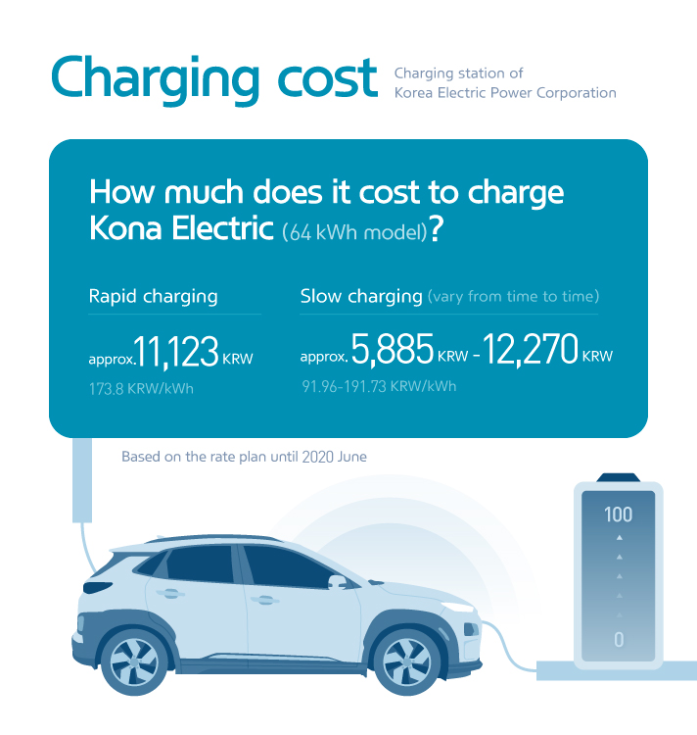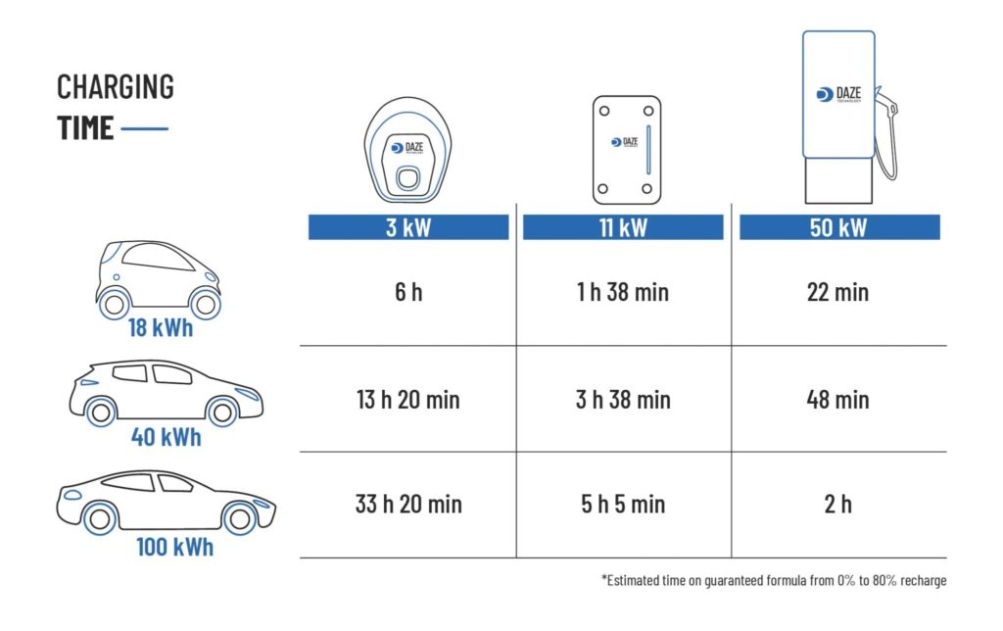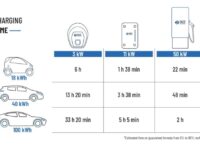Revving Up Your EV: The Ultimate Charging Guide
Welcome to the ultimate guide on charging your electric vehicle! As more and more people are making the switch to electric Cars, it’s important to understand exactly how many kilowatts are needed to power up your EV. In this article, we will delve into the world of electric vehicle charging and help you unlock the secrets to efficiently charging your EV.

Image Source: medium.com
When it comes to charging your electric vehicle, the first thing you need to consider is the battery size of your car. The battery size will determine how many kilowatts are needed to fully charge your EV. Most electric vehicles come with a standard charger that can deliver anywhere from 3.3 to 7.2 kilowatts of power. However, if you want to charge your EV faster, you may need to invest in a Level 2 charger that can deliver up to 10 to 19.2 kilowatts of power.
In addition to the battery size of your car, you also need to consider the charging speed of the charger you are using. A Level 1 charger that delivers 3.3 to 7.2 kilowatts of power can take anywhere from 8 to 20 hours to fully charge your electric vehicle. On the other hand, a Level 2 charger that delivers 10 to 19.2 kilowatts of power can fully charge your EV in 4 to 8 hours. If you are in a hurry, you can also opt for a Level 3 charger, also known as a DC fast charger, that can deliver up to 50 kilowatts of power and fully charge your EV in as little as 30 minutes.

Image Source: daze.eu
Another factor to consider when charging your electric vehicle is the cost of electricity. The cost of electricity can vary depending on where you live and the time of day you are charging your EV. To save money on charging your electric vehicle, it’s recommended to charge during off-peak hours when electricity rates are lower. Some electric utilities also offer special rates for electric vehicle owners, so be sure to check with your utility provider to see if you qualify for any discounts.
Now that you have a better understanding of how many kilowatts are needed to charge your electric vehicle, let’s talk about some tips to help you maximize the efficiency of your EV charging. One of the best ways to ensure a fast and efficient charge is to keep your EV battery level between 20% and 80%. Charging your battery to 100% can actually reduce the overall lifespan of your battery, so it’s best to avoid overcharging whenever possible.
In addition to keeping your battery level between 20% and 80%, it’s also important to keep your EV well-maintained. Regularly checking and replacing worn-out parts, such as the charging cable and connectors, can help prevent any potential charging issues. It’s also a good idea to invest in a portable EV charger so you can charge your car on the go.
In conclusion, understanding how many kilowatts are needed to charge your electric vehicle is essential for maximizing the efficiency and lifespan of your EV battery. By considering factors such as battery size, charging speed, and electricity costs, you can ensure a fast and efficient charge every time. So rev up your EV and hit the road with confidence, knowing that you have the ultimate charging guide at your fingertips. Happy charging!
Unlocking the Secrets of Kilowatts for Your EV
When it comes to charging your electric vehicle (EV), one of the key things to understand is the concept of kilowatts. Kilowatts are a unit of power, and they play a crucial role in determining how quickly and efficiently your EV can be charged. In this article, we will delve into the world of kilowatts and explore how they impact the charging process of your EV.
First and foremost, it’s important to understand that the amount of power needed to charge your EV is measured in kilowatts. This unit of measurement is key to determining how fast your EV can be charged and how much energy it will consume in the process. The higher the number of kilowatts, the faster your EV will charge.
So, how do you calculate the number of kilowatts needed to charge your EV? It all comes down to the capacity of your EV’s battery and the charging speed of the charging station. For example, if your EV has a 40 kWh battery and you are using a 10 kW charging station, it will take approximately 4 hours to fully charge your EV. However, if you were to use a 5 kW charging station, it would take twice as long to charge your EV.
Another important factor to consider when it comes to kilowatts is the cost of charging your EV. Charging stations often charge by the kilowatt-hour, which is a unit of energy that measures the amount of electricity consumed. The cost of charging your EV will depend on the rate charged by the charging station and the number of kilowatts used during the charging process.
In addition to understanding the number of kilowatts needed to charge your EV, it’s also important to consider the efficiency of your charging process. The efficiency of charging your EV is determined by how much of the energy from the charging station is actually transferred to your EV’s battery. A higher efficiency means that more of the energy is being used to charge your EV, while a lower efficiency means that some of the energy is being lost in the charging process.
To maximize the efficiency of charging your EV, it’s important to use a charging station that is compatible with your EV’s battery capacity and charging speed. This will ensure that you are able to charge your EV quickly and efficiently, without wasting any energy in the process. Additionally, you can also consider using a smart charging system that can optimize the charging process based on factors such as time of day and energy prices.
In conclusion, understanding the secrets of kilowatts is essential for powering up your EV efficiently. By calculating the number of kilowatts needed to charge your EV, you can ensure that you are able to charge your EV quickly and cost-effectively. Additionally, by maximizing the efficiency of the charging process, you can reduce energy waste and minimize your Carbon footprint. So, next time you plug in your EV, remember to unlock the power of kilowatts for a more sustainable and efficient charging experience.
Zap and Go: Calculating the Perfect Charge
So you’ve made the switch to an electric vehicle (EV) and you’re ready to hit the road in a more sustainable way. But before you can start cruising around town, you need to figure out just how many kilowatts you’ll need to charge up your EV.
Charging your EV is a crucial part of owning one, and understanding how to calculate the perfect charge can make a big difference in how efficiently you use your electric vehicle. In this article, we’ll dive into the world of kilowatts and break down the process of determining the exact number needed to power up your EV.
First things first, it’s important to know that the amount of kilowatts needed to charge your EV can vary depending on a few key factors. These factors include the size of your EV’s battery, the current charge level, the charging speed, and even the weather conditions.
To start calculating the perfect charge for your EV, you’ll need to know the capacity of your EV’s battery in kilowatt-hours (kWh). This information is typically found in your vehicle’s manual or can be easily accessed online. Once you have this number, you can use it to determine how many kilowatts are needed to fully charge your EV.
Next, take a look at the current charge level of your EV. If your battery is completely drained, you’ll need to calculate the total number of kilowatts required to fully charge it from 0% to 100%. This calculation is fairly straightforward – simply multiply the capacity of your battery in kWh by the charging efficiency of your EV’s charging system.
If your battery is not completely drained, you’ll need to adjust your calculations accordingly. For example, if your battery is currently at 50% charge, you’ll only need to calculate the kilowatts required to charge it from 50% to 100%. This can help you save time and energy by avoiding unnecessary charging cycles.
Another important factor to consider when calculating the perfect charge for your EV is the charging speed. Different charging stations offer varying levels of charging speed, ranging from Level 1 (120 volts) to Level 3 (DC fast charging). The faster the charging speed, the more kilowatts your EV will receive per hour, allowing you to charge up more quickly.
Weather conditions can also impact the number of kilowatts needed to charge your EV. Colder temperatures can decrease the efficiency of your battery, requiring more kilowatts to fully charge it. On the other hand, warmer temperatures can improve battery performance and reduce the amount of kilowatts needed for charging.
By taking all of these factors into account, you can calculate the perfect charge for your EV and ensure that you’re maximizing efficiency while minimizing charging time. With a little bit of planning and calculation, you can power up your EV with just the right amount of kilowatts needed to keep you on the go.
So next time you’re getting ready to charge up your EV, remember to consider the capacity of your battery, the current charge level, the charging speed, and the weather conditions. By staying on top of these factors, you can zap and go with the perfect charge every time. Happy charging!
Sparking Efficiency: What You Need to Know
As we continue to shift towards a more sustainable future, electric vehicles (EVs) have become increasingly popular. With the rise in EV ownership, the demand for efficient charging solutions has also grown. In order to fully power up your EV, it’s important to understand the exact number of kilowatts needed for a successful charge. Let’s delve into the world of sparking efficiency and uncover what you need to know.
When it comes to charging your EV, the key factor to consider is the charging rate, which is measured in kilowatts (kW). The higher the charging rate, the faster your EV will charge. However, it’s important to note that not all EVs are created equal when it comes to charging capabilities. Some EVs can only handle a certain maximum charging rate, so it’s crucial to know the specifications of your vehicle before selecting a charging station.
In order to determine the exact number of kilowatts needed to charge your EV, you must first consider the battery capacity of your vehicle. The battery capacity is measured in kilowatt-hours (kWh) and indicates how much energy the battery can store. For example, if your EV has a battery capacity of 60 kWh and you want to charge it from 0% to 100%, you will need at least 60 kWh of energy.
Next, you’ll need to factor in the charging efficiency of your EV. Charging efficiency refers to the amount of energy lost during the charging process. This loss can be due to factors such as heat generation and electrical resistance. While most EVs have a charging efficiency of around 90%, it’s important to take this into account when calculating the number of kilowatts needed for a full charge.
Another important consideration when it comes to sparking efficiency is the type of charging station you are using. There are three main types of charging stations: Level 1, Level 2, and DC fast charging. Level 1 charging stations typically provide around 2-5 kW of power and are best suited for overnight charging at Home. Level 2 charging stations offer higher power levels, ranging from 6-19.2 kW, and are commonly found at public charging stations and some residential locations. DC fast charging stations are the fastest option, providing power levels of 50 kW or higher, and are ideal for quick charging on the go.
In addition to the charging station type, the charging connector also plays a role in determining the number of kilowatts needed for a successful charge. There are multiple types of charging connectors, including Type 1, Type 2, CHAdeMO, and CCS. Each connector has a different maximum power output, so it’s important to make sure that your EV is compatible with the charging station you are using.
To further optimize charging efficiency, you can also take advantage of smart charging technologies. These technologies allow you to schedule charging times, monitor energy consumption, and even integrate renewable energy sources into the charging process. By utilizing smart charging solutions, you can ensure that your EV is charged in the most efficient and environmentally friendly way possible.
In conclusion, sparking efficiency when charging your EV is essential for maximizing performance and minimizing energy consumption. By understanding the factors that influence the number of kilowatts needed for a successful charge, you can power up your EV in the most efficient way possible. So next time you plug in your EV, remember to consider the battery capacity, charging efficiency, charging station type, charging connector, and smart charging technologies to ensure a smooth and efficient charging experience.
how many kilowatts to charge an electric car






